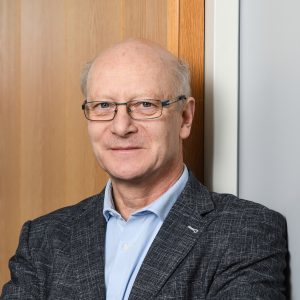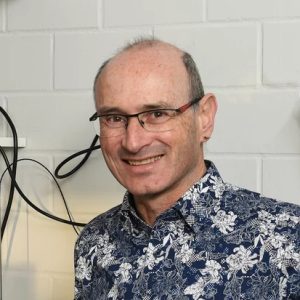
Max Planck Institute for Polymer Research (MPG-P) is dedicated to fundamental soft matter science in general and macromolecular research in particular. The aim is to establish links between chemical structure, physical properties and function, by generating and characterizing such systems, and theory to understand their behavior. MPG-P forms an interdisciplinary environment where chemists, physicists, biologists and engineers work together. FORGREENSOFT will involve two groups from MPG-P: the Experimental Physics group of H-J. Butt and the Polymer Theory group of K. Kremer
The Experimental Physics Group (Prof. H.-J. Butt) focuses on the physics of soft matter interfaces. The group of 70 members studies the structure and the properties of interfaces and the interaction between them. Major topics are interfacial forces, wetting, and functional materials. The methods used include Atomic force and Kelvin force microscopy, focused ion beam, laser scanning confocal microscopy and fluorescence correlation spectroscopy, high speed video microscopy and X-ray diffraction (WAXS, SAXS). In one project, relevant to the current proposal, we fabricate membranes for membrane distillation, a promising technology for desalination of sea water and cleaning of waste water. Currently the method is limited by low efficiency, membrane scaling, and fouling. We aim to overcome these limits by coating commercial membranes with a nanofilament layer, which makes the membranes superhydrophobic.
https://www.mpip-mainz.mpg.de/en/home
The Department of Polymer Theory (Prof. K. Kremer) has world-renowned expertise in multi-scale modeling, adaptive resolution simulations and free energy calculations for a very broad range of systems including polymer networks, polyelectrolytes, biopolymers, glassy systems and biological membranes. The research group consist of about 40 researchers and pursues a broad program on theoretical and computational research in soft matter physics and material science. The members of the group develop and apply as well, novel computational methods for wide range of systems: from polymer networks, biopolymers, hydrogels, polyelectrolytes, up to membranes, material science and organic electronics. More relevant for the FORGreenSoft is the expertise of the group in multi-scale modeling, free energy calculations and the incorporation of machine learning methods for studying soft matter systems across various spatiotemporal scales.
SENIOR RESEARCHERS

Prof. Hans-Jürgen Butt

Prof. Kurt Kremer

Dr. Kostas Daoulas

Dr. Michael Kappl


RESEARCH FELLOW

Dr. Mariana D. Sosa


